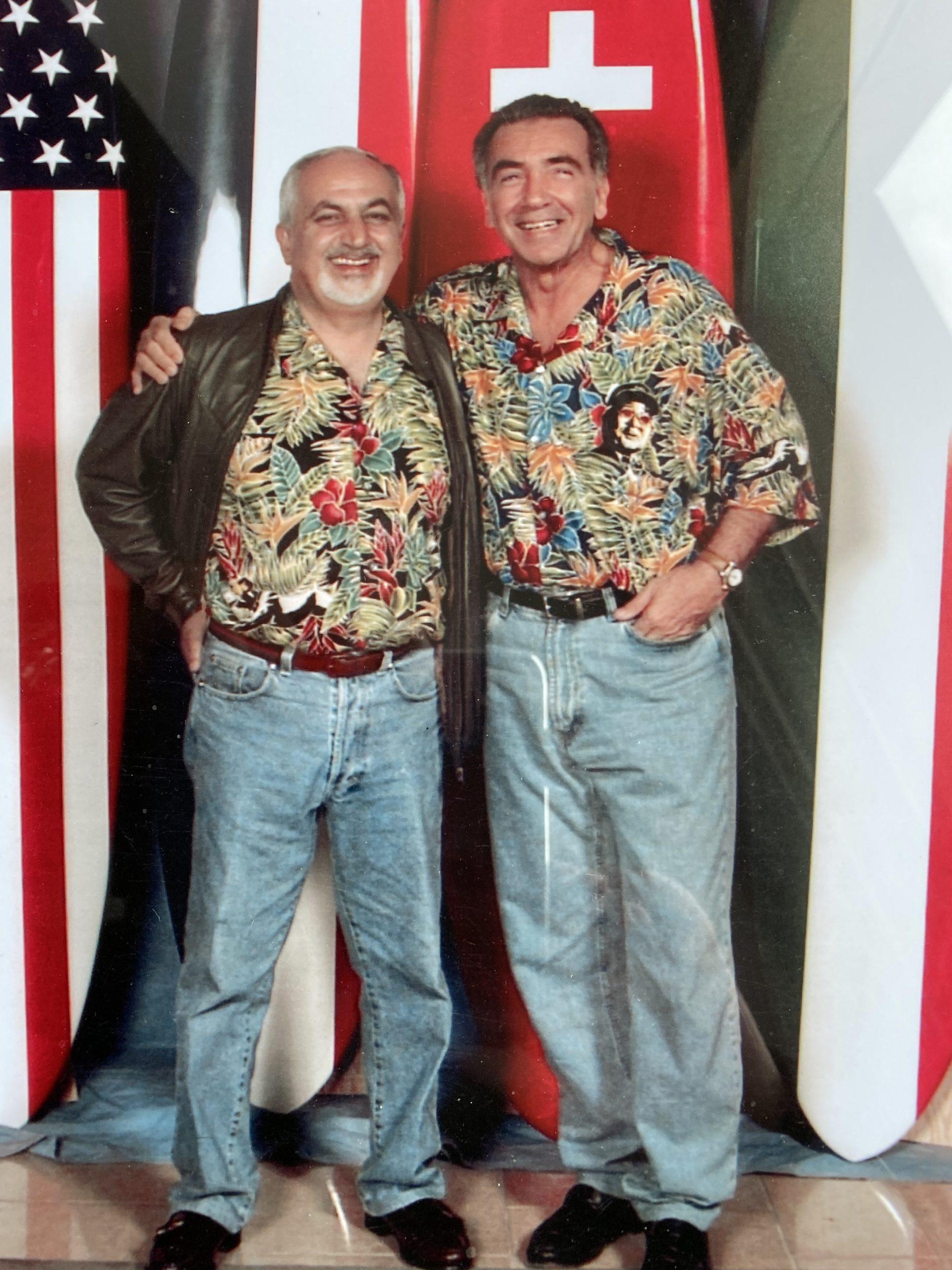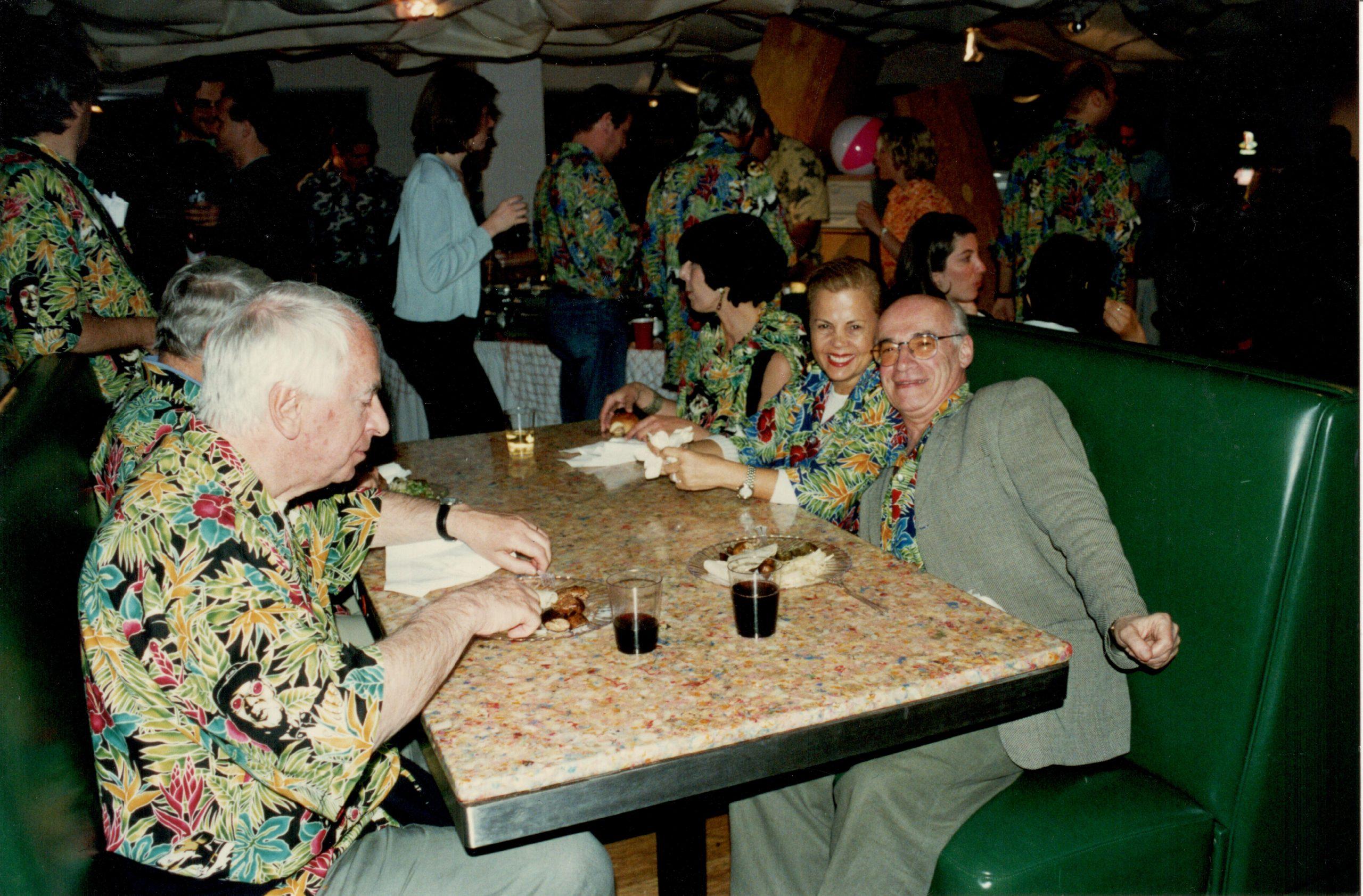Although we were still only affiliates, TBWA seemed eager for us to be immersed in its agency culture. In 1998, Bill Tragos invited us to participate to the International Worldwide Leadership Conference held in Los Angeles. There, we were introduced to the two other living founders, Claude Bonnange and Uli Wiesendanger, as well as many other colleagues from all around the TBWA world.
Tragos declared the conference open and introduced all newcomers, which was a nice opportunity for us to stand and bow in front of the many participants, some of whom could not wait to ask us about the Middle East. Tragos updated the conference on the group’s progress, stressing that it had tripled in size during the previous four years. He proudly added that, at 28 years old, TBWA was “coming of age”, being the youngest global network and the fastest growing, with 95 affiliates in 60 countries.
Then Uli Wiesendanger and Lee Clow went on stage and gave a joint talk, stressing that one of the wonderful things about TBWA was that the great work it had been producing was coming from many of its agencies around the world, not just from New York or Chicago. Uli continued to say that amongst the shortlisted international agencies for the 1998 “Global Agency of the Year” honor, two were TBWA agencies. The first was the closest agency to the North Pole, the second was the closest to the South Pole. Lee Clow concluded by asking: “Who else can claim that?”
We were then introduced to the first guest speaker: George Stephanopoulos, the chief anchor and political correspondent for ABC News and one of the key members of Michael Dukakis’ 1988 US presidential campaign team. Stephanopoulos’ presentation stressed the importance of having a well-defined strategy for any business, task, or project. Success would basically depend on our forcefully sticking to this strategy and disseminating it through everything we said or did. He concluded his presentation by saying: “In case of crisis, we should never cover up. A simple apology could often solve the crisis.”
On the second day of the conference, Peter Economides, TBWA’s head of global clients, announced that the theme of the remaining three days would be “Managing our Assets”. He explained that the first day would be dedicated to people, the second to clients and the third to reputation.
A young girl in ripped denim jeans and a flashy colored t-shirt went on stage to introduce herself as our host for the first day. She eyed each one of us in the auditorium, saying she noticed a deep sense of disappointment in her opening statement. She quickly flicked the remote-control device to change the slide on the giant screen, to show the cover of Time magazine. The cover featured her and the title “The Age of Generation X”. She explained that she was an account executive at TBWA\Chiat\Day and had been chosen by Time to represent Generation X. She sarcastically said that she was not surprised by our reaction, as most participants were the same age as her father, who would have reacted in the same way. Then she turned to all of us and asked: “How would you behave if you came to my corner of the office and did not find me sitting at my desk, but on the floor with the PC in my lap, earphones over my head and Ruff my dog licking at my bare toes?” She chuckled at our facial reactions, saying: “My father would have thrown me out of the window.”
She flagged the generation gap in her presentation, concluding that since TBWA was the youngest of the global networks and called itself the “Disruption Agency”, we needed to realize and accept that the advertising business was a young people’s business and that we should turn our offices into virtual offices, where staff could sit and work wherever they felt like. This would help make TBWA the agency of the future and not one of the many agencies of the past.
Economides returned to the stage to conclude, saying: “In order to be the best:
- Hire the best people in the market
- Pay for the best as it saves money in the long term
- Pitch only for the business that allows you to be your best
- Assume the best about your people. Don’t manage to the lowest common denominator
- When you are not your best, recognize it. Be honest about it and correct it.
- Reward the best publicly.”
On the second day, senior people from Nissan, Nivea, Apple, Sony PlayStation, and Absolut spoke to us about their experiences with TBWA and the things they liked about the agency.
On the final day, the conference organizers invited members of the trade media, including representatives of Campaign in London and the Paris-based Strategies, to discuss reputation. Mike McCarthy of Adweek said that agencies could manage their reputation better by working closely with the trade press, stressing that if we think that no news about our agencies is a good thing, we were mistaken. Silence is not good when meeting the press.
He advised that when asked, we need to answer with the straight truth, not exaggerate nor lie. Caroline Marshall of Campaign insisted that agencies should stop worrying every time they were contacted by the media, as they had to learn how to love the trade press, which could develop into the best amplifier of their reputation. She recommended that we keep regular contact with them, send them our releases and invite them to meet key agency people and even our clients.
The conference ended on a very high solidarity-boosting note, and I went back to Dubai convinced that the TBWA group spirit was much more dynamic and genuine than that of Ogilvy & Mather, JWT, Y&R, Saatchi & Saatchi and all the other agencies I had worked with.
This was my first bonding and integration opportunity, but it was the beginning of many, many more that would follow.

